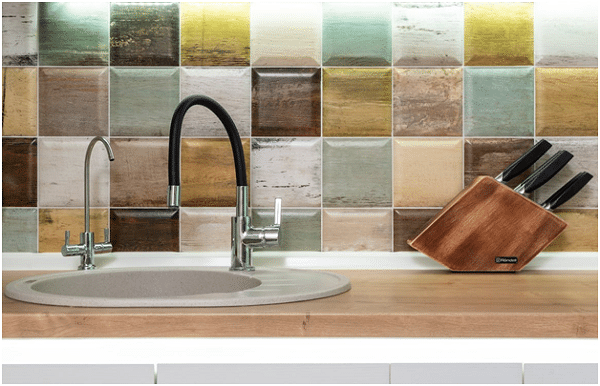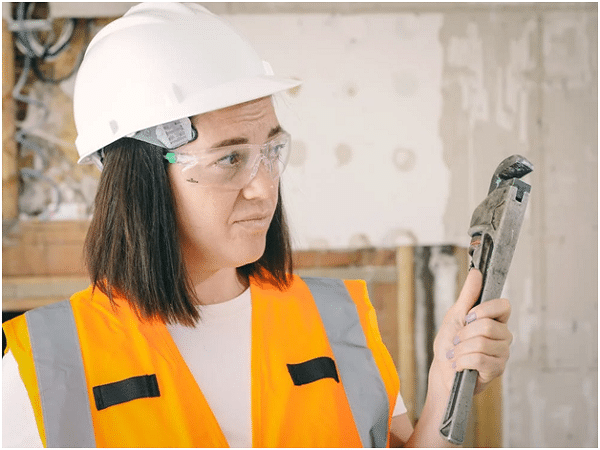Table of Contents
Plumbing issues are a nightmare that every homeowner dreads. A simple plumbing mistake can cause extensive damage and might even cost you a fortune to fix. For instance, leaks not only waste water but can also damage your floors, walls, ceilings, and even kitchen cabinets.

Burst pipes can cause severe flooding, and clogged drains lead to a nasty backup. The issues also affect air quality as mold and mildew increase. Here are a few simple measures to avoid these plumbing mistakes.
Failure to Check for Leaks
One of the most common plumbing mistakes is failing to check for leaks. Even a tiny leak can waste a lot of water and cause extensive damage. Check your home’s plumbing fixtures, including under the sink, bathroom, and laundry room.
Don’t forget to inspect the outdoor faucets and hose bibs. Stains or mold growth on walls, ceilings, or floors can also signify a leak. If you notice any leaks, have them fixed immediately.
Ignoring Low Water Pressure
If you have low water pressure, it could be a sign of a more significant issue. Your pipes are clogged, or there is a leak somewhere. Another possibility is that the water heater needs a replacement. Regardless of the cause, have low water pressure checked out by a professional.
However, you can also check whether the main water shut-off valve is fully open. If it’s not, turn it until you achieve the desired water pressure. Additionally, have a professional clean the aerator, which is the screen at the end of the faucet. It might be clogged, causing low water pressure.
Using the Wrong Plumbing Fixtures
Just because a plumbing fixture is available doesn’t mean it will work with your plumbing system. For instance, using a toilet with a high gallon-per-flush rate in an area with low water pressure won’t work. The same goes when using a showerhead with too many nozzles. It will decrease the water pressure.
Using the wrong size pipes can cause significant issues. If unsure about what plumbing fixtures to use, ask a professional for help. They will make recommendations based on factors such as water pressure and the size of your pipes.
Putting Off Repairs
Putting off repairs makes an issue escalate fast, leading to extensive damage. It might seem like a minor issue, but it can quickly become a big one. For instance, a small drip might not seem like much, but it can waste a lot of water. It can also damage your floors, walls, or ceilings.

The same goes for a clogged drain; it’s best to have repairs done as soon as possible to prevent further damage. Since not all plumbing issues are easily detectable, it’s a good idea to schedule regular inspections from professionals available at pm247.co.uk/services/plumbing/london/ and similar platforms. They can check the entire system and identify any potential problems.
Failing to Insulate Pipes
Pipes can freeze during winter, causing them to burst. To prevent this, insulate all the exposed pipes. The effort is crucial for pipes in unheated areas such as the attic, garage, or crawl space. Use pipe sleeves, heat tape, or foam rubber to insulate the pipes. For best results, hire a professional to do it.
Not Knowing the Location of the Main Water Shut-Off Valve
If there’s a significant plumbing issue, you must immediately shut off the water in your home. If you don’t know the location, you won’t turn off the water on time, leading to extensive damage and water wastage. Learn the location of the valve and how to turn it off. Ideally, everyone in your household should know where it is and how to operate it.
Using Chemical Drain Cleaners
Chemical drain cleaners are harsh and can damage your pipes. If used too often, they lead to health issues. Instead of using these cleaners, opt for a plunger or a plumber’s snake. Alternatively, use a cup of baking soda followed by a cup of vinegar. Let the mixture sit for 30 minutes before flushing with hot water.
For severe clogs, hire a professional. However, prevention is always the best option. Don’t put anything down the drain that doesn’t belong there. These include food scraps, grease, hair, and feminine hygiene products.
Not Replacing Old Fixtures and Pipes
Old fixtures and pipes are more likely to break or leak. They can also decrease your water pressure and quality. As such, it’s best to replace them as soon as possible. Pipes generally have a lifespan of about 30 years.
On the other hand, fixtures can last up to 50 years. However, their lifespan depends on the quality and frequency of use. If you have old fixtures and pipes, have a professional inspect them. They will let you know if they need a replacement.
Ignoring Noises
If you hear strange noises from your pipes, there’s probably an issue that needs quick attention. The noise is usually caused by loose connections or trapped air in the system. It can also be a sign of a water leak. Don’t ignore the noise, and schedule a professional inspection right away.
The Effort Extends the System’s Lifespan
Preventing the most common plumbing issues protects and prolongs the system’s life. You’ll avoid stressful emergencies, costly repairs, and water damage. You’ll also save money on your water bill. Inspect your plumbing regularly to catch potential problems early on.